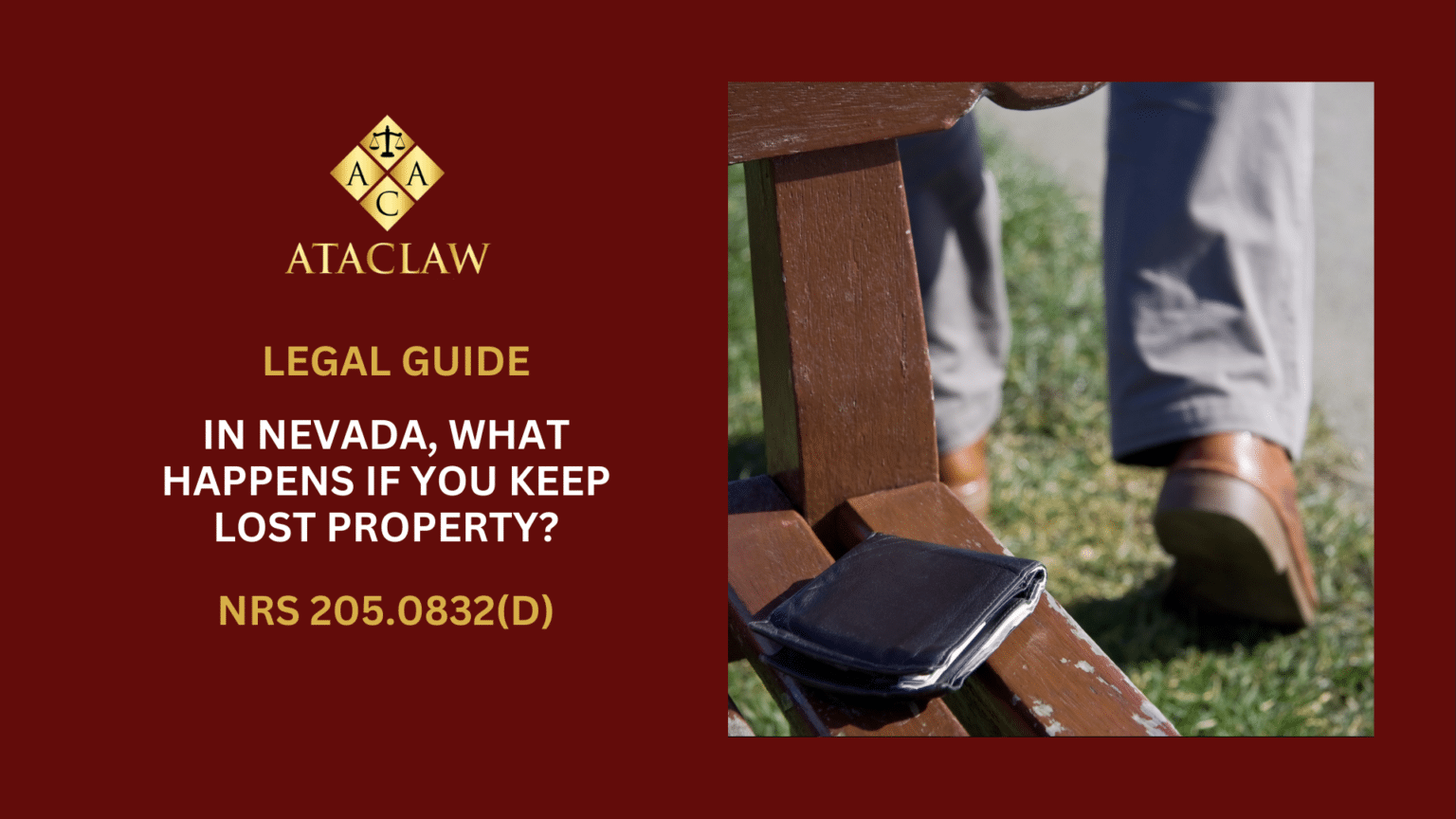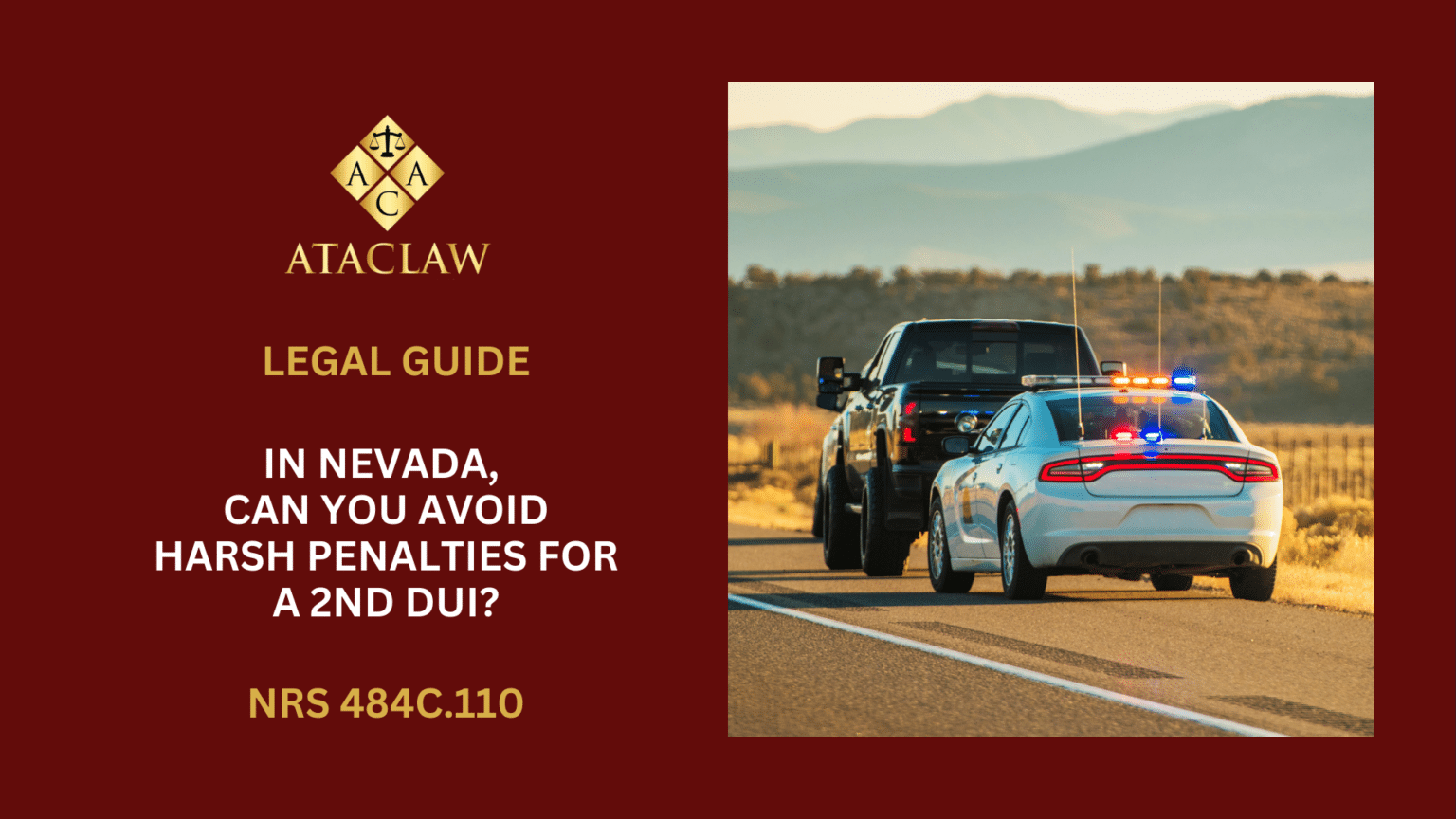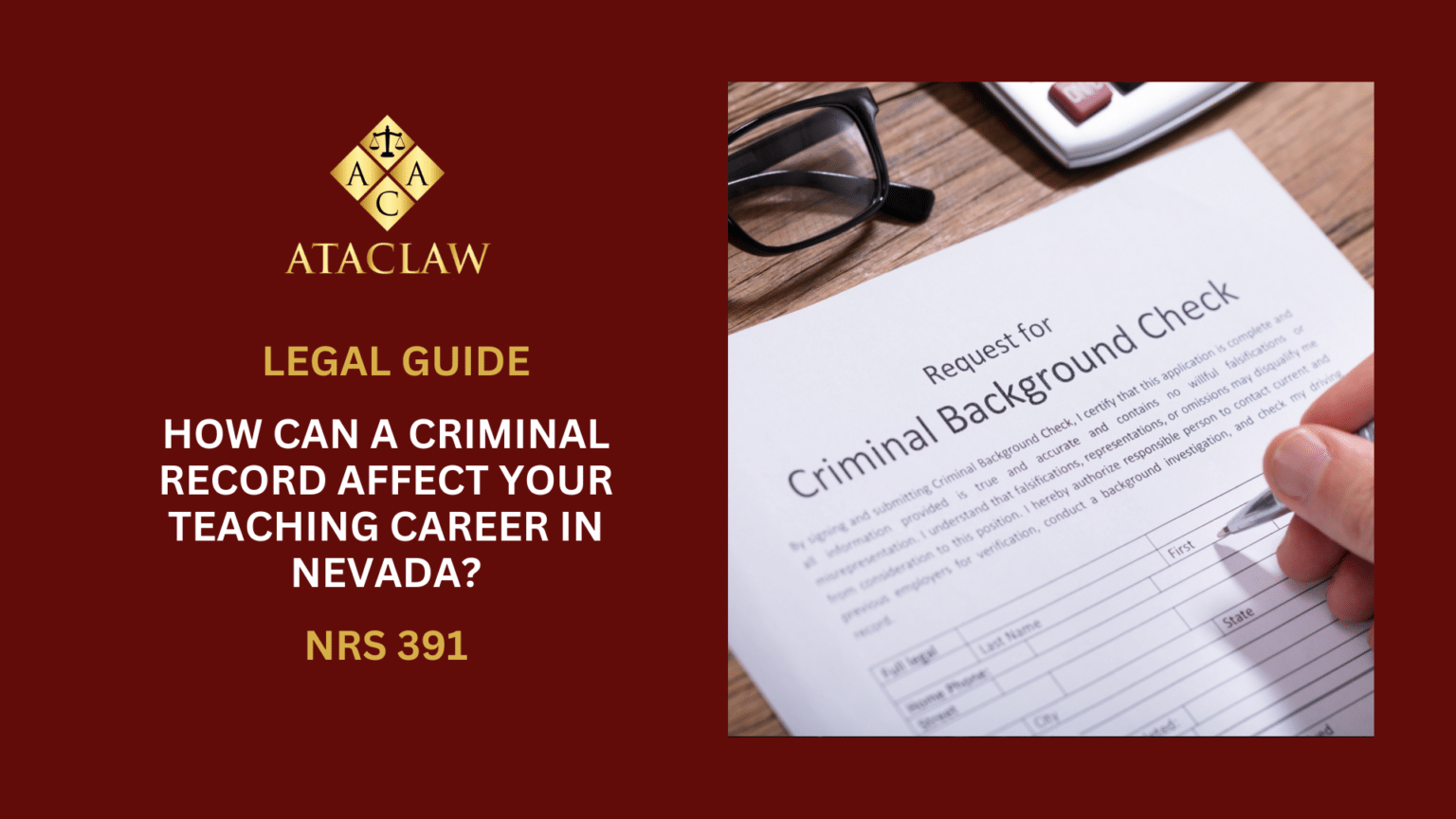In Nevada, retaining someone else’s lost property without attempting to return it can lead to legal repercussions under the terms of NRS 205.0832(d). This statute mandates that individuals who come across lost items are required to exert a reasonable amount of effort to locate and return the items to their rightful owners before considering keeping them.
Individuals found guilty of stealing lost property may face several penalties, including:
- Incarceration: Serving time in prison or jail,
- Fines: Monetary penalties payable to the state, and
- Victim Restitution: Compensation paid to the victim for their loss.
These consequences underscore the seriousness with which Nevada views the misappropriation of lost property.
Could Your Nevada Gathering Be Considered Illegal?
In Nevada, the definition of “theft of lost property” revolves around acquiring someone else’s lost or misplaced belongings without permission and using them for your own benefit without making a sincere attempt to locate the original owner. Simply put, if you find an item that you’re aware is lost, the law obligates you to undertake “reasonable efforts” to return it to its rightful owner.
Imagine, for instance, Jamie hosts a large gathering at her residence in Henderson with numerous attendees. After the event, she discovers a luxury pair of sunglasses left behind. Jamie has no clue to whom these sunglasses might belong but decides to keep them, adhering to the “finders keepers” rule. Meanwhile, the true owner files a missing item report with the local authorities. Should it come to light that Jamie retained the sunglasses without attempting to locate the owner, she could face legal consequences.
In this scenario, the fact that Jamie found the sunglasses in her home does not absolve her from the responsibility of attempting to find their owner. Not knowing the owner does not exempt her either. Given that the party was comprised of Jamie’s acquaintances and their connections, she could take several steps to fulfill her obligation, such as:
- Emailing all known attendees and asking them to forward the message to other guests,
- Posting about the found sunglasses on social media and requesting her network to share the information,
- Turning the sunglasses over to law enforcement to aid in the search for the owner.
It’s important to highlight that the value of the sunglasses, whether high or low, does not impact Jamie’s duty to try to find the owner. Furthermore, if Jamie never actually discovered the sunglasses (for example, if they were hidden in a rarely checked part of her home), she wouldn’t be held responsible for theft as she wasn’t knowingly in possession of the item. Anyone who comes across lost property in Nevada and wishes to keep it must first make considerable efforts to identify and contact the original owner.
What Are Your Responsibilities When You Find Lost Property With No Owner Information?
Upon finding unmarked lost property, it’s a common misconception that you can simply claim it as your own. However, even when items like articles of clothing or locked electronic devices lack identifiable information, finders must exert “reasonable efforts” to locate the original owner. Search engines play a key role in helping individuals understand their duties in such circumstances. Here are some effective strategies that conscientious finders should employ:
- Utilizing online classifieds such as the “Lost and Found” section on Craig’s List,
- Depositing the found item at a designated local “lost & found” point, if available,
- Crafting flyers to display in the vicinity of where the item was discovered, and
- Broadcasting the discovery via social networks like Facebook or Twitter to maximize outreach.
In situations where the lost possession contains clear clues leading to the owner, such as a wallet with an ID and contact cards, finders are even more pressed to take prompt action. With today’s digital connectivity, reaching out to someone can be a swift and straightforward process, accomplished via:
- Postal services,
- Telephone calls,
- Electronic mail (email), or
- Direct messaging on social media platforms.
Taking Care with Particular Finds
It’s pivotal to underline that if you stumble upon items that appear illegal, such as drugs or other prohibited goods, the responsible step is not to handle the articles at all, but instead immediately report the situation to the appropriate authorities. ATAC LAW can advise on the best legal course of action for such discoveries.
Moreover, if the found item is an animal, the moral course of action—and often a legal requirement—is to either take it to a local animal shelter or care for it until the owner is located, assuming you have the necessary means to offer temporary care.
What Are the Legal Implications of Bait Purse Stings in Las Vegas?
In an effort to crack down on petty theft, the Las Vegas Metropolitan Police often employ tactics such as bait-purse stings to catch thieves red-handed. By strategically placing valuable items in public spots, officers can effectively target and apprehend individuals engaged in theft.
Imagine John strolling through a popular casino when he spots a woman’s handbag unattended on the ground. He looks around stealthily and, believing no one is watching, quickly conceals the handbag under his coat and walks away. Unbeknownst to him, an undercover officer has been observing his actions. Shortly after, John is arrested and charged with theft of lost property, and he is taken to the Clark County Detention Center.
John’s deliberate actions—surveying the area, sneaking up to the handbag, and hiding it—indicate his intention to steal. This scenario, likely captured by surveillance cameras, provides strong evidence against him. Conversely, had John visibly picked up the handbag to take it to a security desk or a lost and found, his defense lawyer might argue that he was attempting to return it, thus positioning him as a good Samaritan rather than a thief.
Such sting operations, while effective in trapping wrongdoers, also harbor complex legal nuances. If a person accused in a bait-purse sting feels wrongfully charged, obtaining legal representation is advisable. Law firms like ATAC LAW can offer expert advice on navigating these legal complexities and provide a robust defense strategy.
Las Vegas visitors and residents alike should be aware of how these operations are conducted to avoid unintentional legal troubles. Understanding the implications of handling unattended items in public can greatly aid in making informed decisions.
Is Holding Stolen Property Considered a Crime in Nevada?
In Nevada, possessing stolen property is a criminal offense distinct from theft of lost property. The key difference is that possession of stolen property charges are levied against individuals who knowingly take control of items they’re aware have been stolen, rather than merely found.
What’s the Time Limit for Prosecuting Theft?
Nevada sets a statute of limitations on theft, varying by the value of the lost property. If the item is worth less than $1,200, charges must be filed within one year of the property being found. For items valued at $1,200 or more, the window extends to four years.
What Are the Penalties for Theft of Lost Property in Nevada?
The consequences for “Theft of Lost Property” in Nevada vary significantly depending on the value of the property involved. Here’s a breakdown of the potential penalties one might face:
- For Property Valued Less than $1,200: This is treated as a misdemeanor, which could lead to up to 6 months in jail, fines up to $1,000, and a requirement to make restitution.
- Property Valued from $1,200 to Less than $5,000: This level of theft is classified as a category D felony, attracting 1 to 4 years in Nevada State Prison, potential fines up to $5,000 (at the discretion of the judge), and mandatory restitution payments.
- Property Valued from $5,000 to Less than $25,000: Classified as a category C felony, the penalties include 1 to 5 years in Nevada State Prison, restitution, and possibly a $10,000 fine at the judge’s discretion.
- Property Valued from $25,000 to Less than $100,000: This is a category B felony, with sentencing ranging from 1 to 10 years in Nevada State Prison, alongside restitution and a potential $10,000 fine.
- Property Valued at $100,000 or More: Also a category B felony but with harsher penalties, including 1 to 20 years in Nevada State Prison, restitution payments, and up to $15,000 in fines.
It is crucial for those facing such charges to contact a knowledgeable legal representative. ATAC LAW is experienced in handling such cases and can provide the necessary legal support and strategy to navigate through these complex legal waters.
What Are Your Defense Options if Accused of Theft of Lost Property in Nevada?
In Nevada, being charged with “Theft of Lost Property” can be a daunting experience, but there are valid defense strategies one can employ. Here are two common defenses recognized under Nevada law:
- Effort to Identify the Property’s Owner: If an individual finds lost property and undertakes diligent efforts to locate its owner but fails, they shouldn’t be found guilty of theft if they’ve kept the property. The key is maintaining detailed records of attempts to find the owner, which can provide essential evidence of the finder’s good faith. Without such documentation, authorities have no basis to distinguish between honest efforts and deceitful claims.
- Intention to Return the Property: In Nevada, temporarily possessing lost property with the aim of returning it to its rightful owner is not deemed criminal. It’s understood that securing the item may be the most viable way to protect it while attempting to locate the owner. However, the individual in possession of the property should make prompt efforts to return it. A prolonged period of possession without visible attempts to return the item could be misconstrued by law enforcement as an intention to permanently withhold it from the rightful owner.
Utilizing these defense strategies effectively can be complex, and seeking legal counsel from reputable sources like ATAC LAW is advisable. An experienced legal team can provide crucial guidance and advocate on your behalf to ensure your rights are protected in the face of such charges.
Understanding the legal implications and the severity of charges for theft of lost property in Nevada is essential. If you find yourself facing such allegations, proactive and informed legal action is paramount. Consulting with a specialized attorney from ATAC LAW can help clarify your rights and options, ensuring the best possible outcome in your specific case.
For further legal assistance and to discuss your case with an expert, don’t hesitate to contact ATAC LAW.




